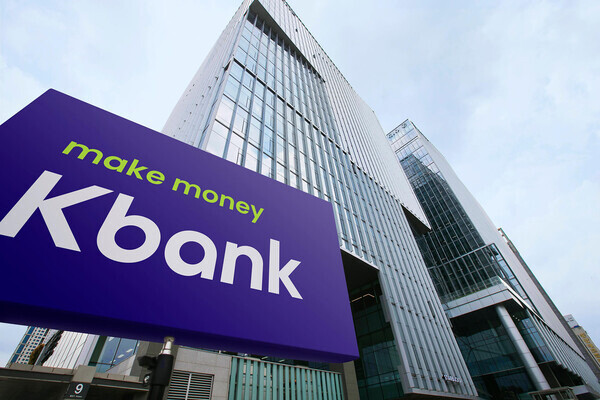
Seoul, South Korea – In a bold move to bolster consumer trust and security in the digital age, K-Bank, a prominent South Korean internet-only bank, has announced the launch of an industry-first "Full Compensation for Identity Theft" service, effective May 13th. This groundbreaking initiative positions K-Bank as a leader in proactive customer protection, offering complete financial reimbursement to users who fall victim to identity theft despite adhering to enhanced security protocols. Simultaneously, the bank is implementing more stringent identity verification procedures to preemptively mitigate the risk of unauthorized access and fraudulent activities.
The newly introduced compensation service specifically targets scenarios where K-Bank customers experience financial losses due to identity theft occurring through their K-Bank mobile application. A key trigger for this protection is the process of changing or newly activating a mobile device used to access K-Bank services. In such instances, customers will be required to undergo additional layers of identity verification, which may include real-time video calls with bank personnel or advanced facial recognition technology. This multi-factor authentication approach aims to ensure that only the legitimate account holder gains access to their financial information and services on a new or altered device.
Significantly, K-Bank's commitment extends to fully compensating customers for any financial losses incurred due to identity theft, even after these reinforced verification steps have been successfully completed. This unprecedented guarantee underscores the bank's confidence in its enhanced security measures and its dedication to safeguarding customer assets. By assuming the financial risk in these carefully defined circumstances, K-Bank is signaling a paradigm shift in how financial institutions address the growing threat of digital identity fraud.
However, the scope of this comprehensive compensation policy is carefully delineated. The coverage explicitly excludes instances of identity theft perpetrated by family members or close acquaintances, as these often involve complex interpersonal dynamics that fall outside the realm of typical cybercrime. Furthermore, losses stemming from the transfer or loss of a customer's mobile phone, where negligence on the part of the account holder might be a contributing factor, are also not covered. Additionally, transactions or losses incurred through third-party applications, such as those used for open banking or firm banking services, lie outside the direct control and security protocols of the K-Bank application itself and are therefore excluded from this specific compensation offer.
Despite these defined exclusions, the "Full Compensation for Identity Theft" service represents a significant value proposition for K-Bank customers, offered entirely free of charge. This proactive measure not only provides a financial safety net but also offers peace of mind in an increasingly interconnected and digitally driven financial landscape where identity theft remains a pervasive concern.
The implementation of this pioneering service by K-Bank arrives at a critical juncture. Globally, identity theft continues to be a major cybersecurity threat, causing substantial financial losses and significant distress to individuals. According to recent reports, the financial services sector remains a prime target for cybercriminals seeking to exploit vulnerabilities in digital platforms and authentication processes. The sophistication of identity theft techniques, ranging from phishing and social engineering to more advanced methods like SIM swapping and malware deployment, necessitates a multi-layered and adaptive approach to security.
Traditional banking security measures often focus on preventing unauthorized access through technologies like passwords, PINs, and one-time codes. While these remain essential components of a robust security framework, K-Bank's initiative recognizes that even with stringent preventative measures, determined criminals may sometimes succeed. By offering full compensation in specific scenarios where its enhanced verification protocols have been followed, K-Bank is demonstrating a commitment to customer protection that goes beyond mere prevention.
This move by K-Bank is likely to resonate positively with consumers who are increasingly wary of the risks associated with online financial transactions. The promise of full compensation in the event of identity theft, despite adhering to the bank's security measures, could be a significant differentiator in a competitive banking market, potentially attracting new customers and fostering greater loyalty among existing ones.
Industry analysts suggest that K-Bank's innovative approach could serve as a benchmark for other financial institutions, both within South Korea and internationally. As digital banking continues to gain prominence, the need for robust and customer-centric security measures will only intensify. Banks that proactively address the concerns of identity theft victims and demonstrate a willingness to shoulder the financial burden in well-defined circumstances may gain a significant competitive advantage in building trust and confidence among their customer base.
The success of K-Bank's "Full Compensation for Identity Theft" service will likely depend on several factors, including the clarity and transparency of its terms and conditions, the efficiency of the compensation process, and the effectiveness of its enhanced identity verification procedures in deterring and detecting fraudulent activities. However, the underlying principle of providing a financial safety net for victims of identity theft who have followed the bank's security protocols represents a significant step forward in the ongoing battle against digital financial crime.
In conclusion, K-Bank's introduction of the "Full Compensation for Identity Theft" service marks a potentially transformative development in the banking industry's approach to customer security. By combining enhanced identity verification with a commitment to full financial reimbursement in specific scenarios, K-Bank is not only protecting its customers but also setting a new standard for accountability and trust in the digital banking era. This pioneering initiative could well pave the way for a more secure and customer-centric future for financial services worldwide.
[Copyright (c) Global Economic Times. All Rights Reserved.]



























